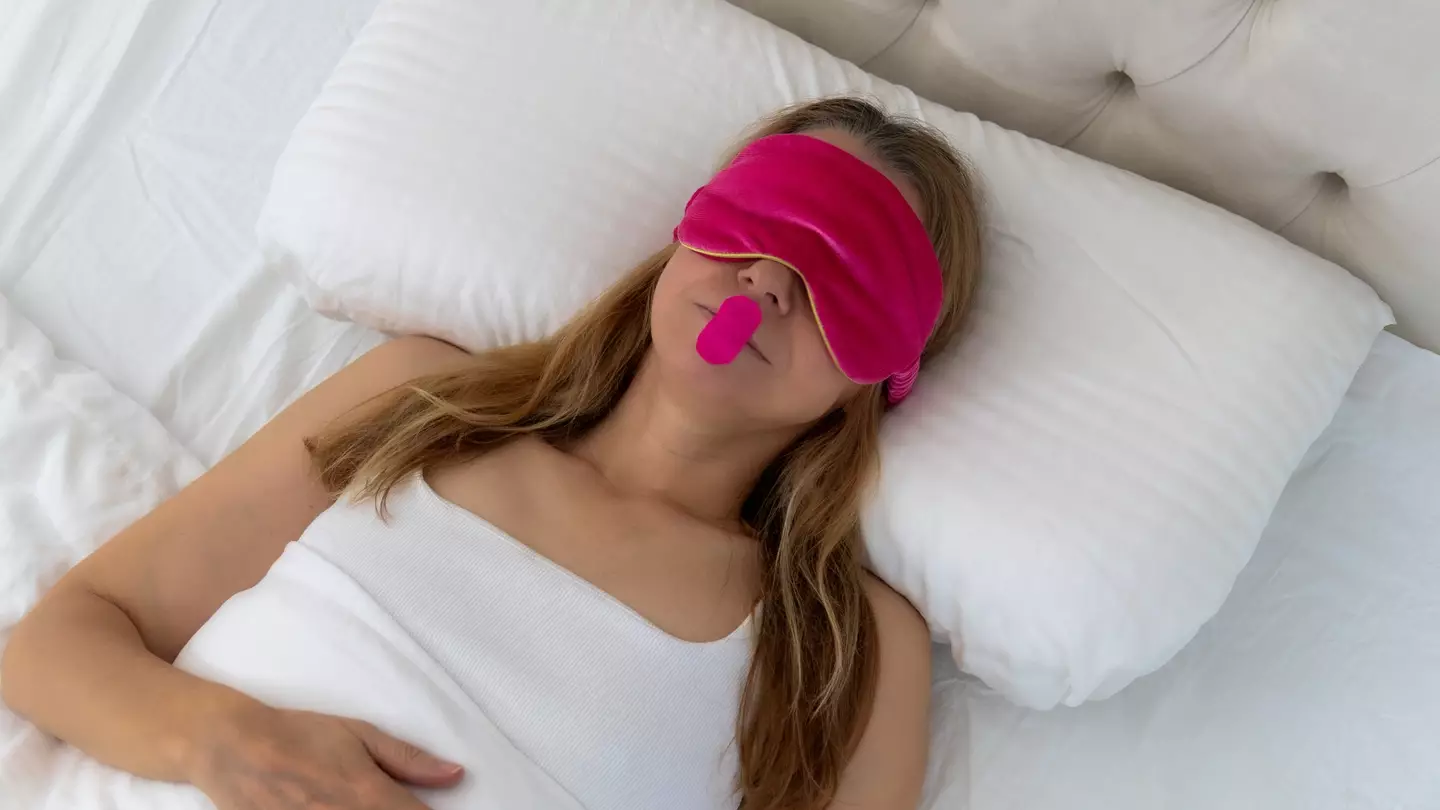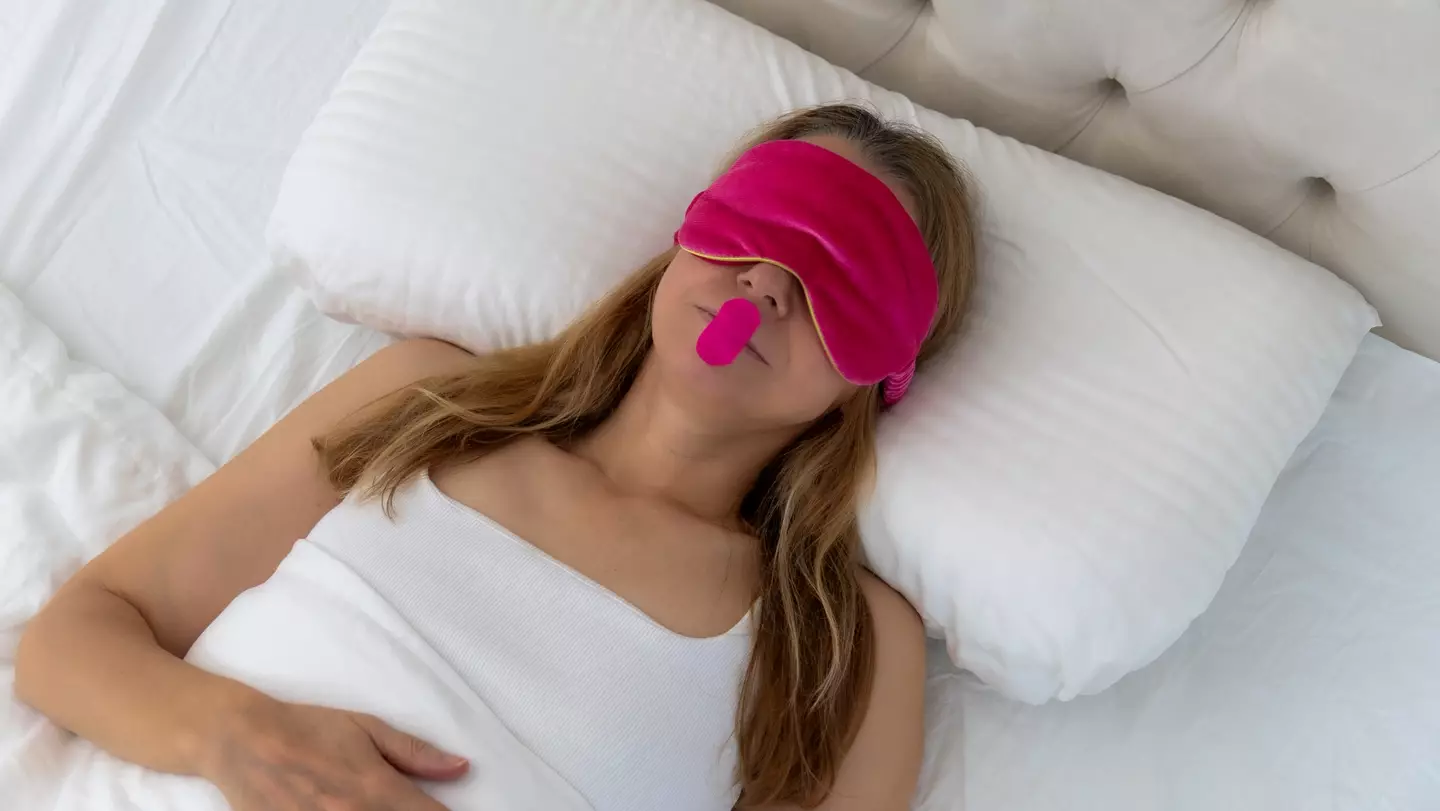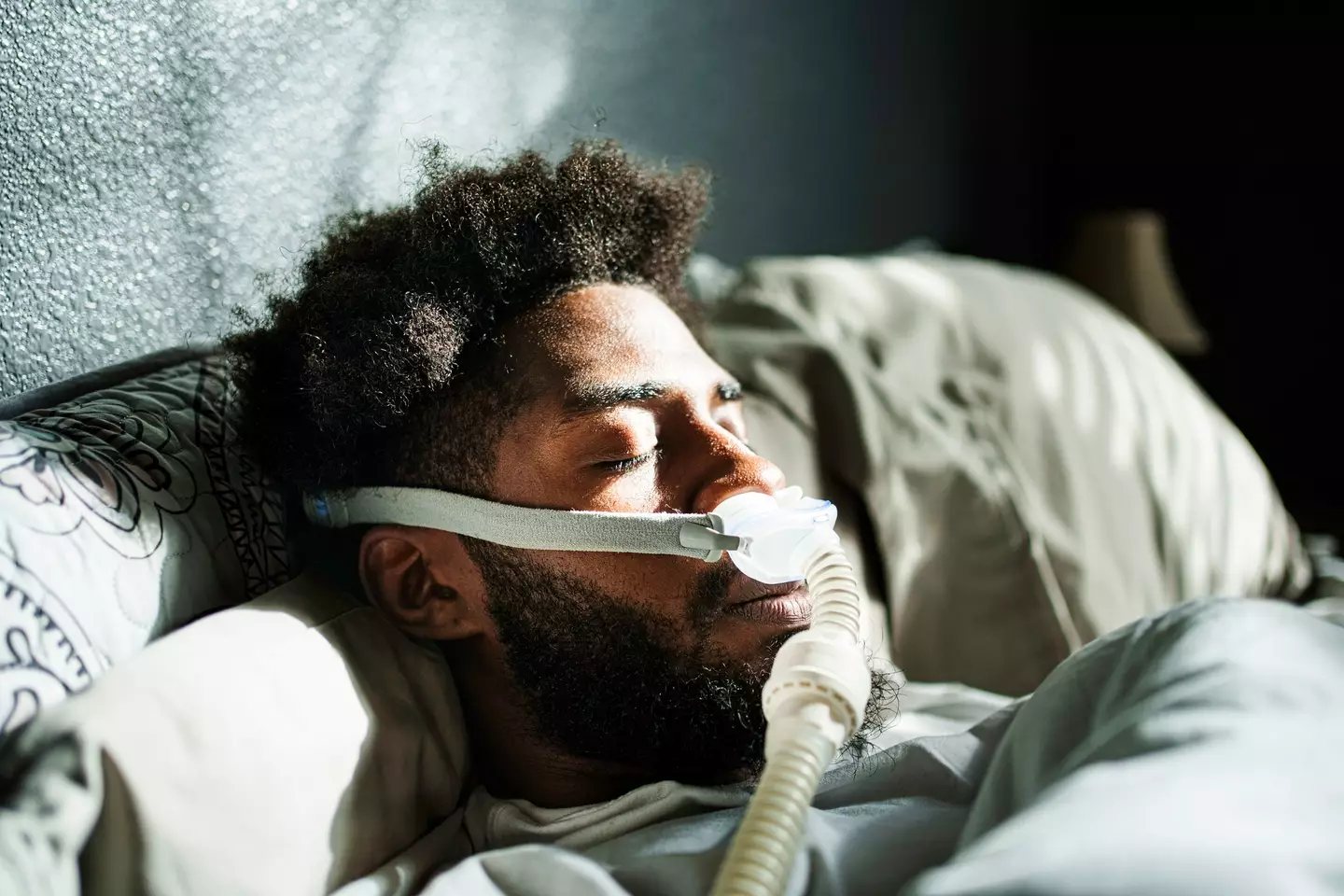
The growing trend of mouth taping and its risks have been explained by experts, as they warn against the method.
Getting good sleep is something that has become more important among the majority of adults in recent times, with health seeming to take precedent in a lot of people's lives after the pandemic.
It's a welcome change to the average human lifestyle, which is becoming more and more plagued by social media, which is giving people ideas on how to improve their everyday habits.
Sleeping habits fall into this category, with more people seeming to buy into the 'mouth taping' craze which many believe to be beneficial for your overall health - but how true is this?
Advert
Well, according to experts, it's not a proven method and it could be dangerous for your health.

Mouth taping is when you place special adhesive tape over your lips at night to keep your mouth closed and to stop mouth breathing when you sleep.
It's thought to improve sleep and reduce snoring, therefore improving your lifestyle, as certain companies have even started selling products related to the trend.
Other benefits include controlling the temperature of the air you breathe, filtering toxins from the air before it reaches your lungs, or making the air you breathe humid, stopping your mouth and throat from becoming dry as you breathe through your nose.
Doctors have advised against the sleeping method, though, as Dr. Kimberly Hutison, a neurologist and sleep medicine expert at Oregon Health & Science University, told the Independent: "The studies behind mouth tape are small, the benefits are modest and the potential risks are there."
Apparently, these risks can include making sleep disorders such as sleep apnea worse. Suffocation is also possible.
Experts have pointed out that mouth breathing in adults isn't a significant health risk, although it is generally better to breathe through your nose, as it filters out dust and allergens before they reach your lungs.
Sleeping with your mouth open can give you a dry mouth in the morning and an irritated throat, which could lead to bad breath or long-term oral problems, with the issue linked to snoring.
Mouth taping may seem like a great idea, but experts have said this is not the way to fix mouth breathing, as there's no solid evidence to say it improves sleep, with the limited studies carried out showing that there was little to no impact.

Sleep doctor Dr. David Schulman from Emory University suggested that prescription mouthpieces can open up your airway, or in more extreme situations, a continuous positive air pressure (CPAP) machine can be used.
It's advised that you quit smoking or try to lose weight if you have these issues and are a smoker or overweight.
While you may have sleep apnea, a sleep disorder where breathing can stop and start during sleep due to a blocked airway, the disorder can be treated with a CPAP machine, even though it's linked to breathing and snoring.
Dr. Brian Chen, a sleep doctor from the Cleveland Clinic, explained: “The reason sleep apnea can be bad is that any decrease in the quality of sleep can affect you day to day or over the course of your life,
“Depending on how bad the sleep is, you may just feel sleep-deprived or require more sleep.”
All you need is a sleep test, says Dr Shulman, who stated that it's always better to know, adding: “And if you know that something’s going on and you choose not to pursue therapy, at least you know you’re making an educated decision.”
Topics: Sleep, Health, Social Media